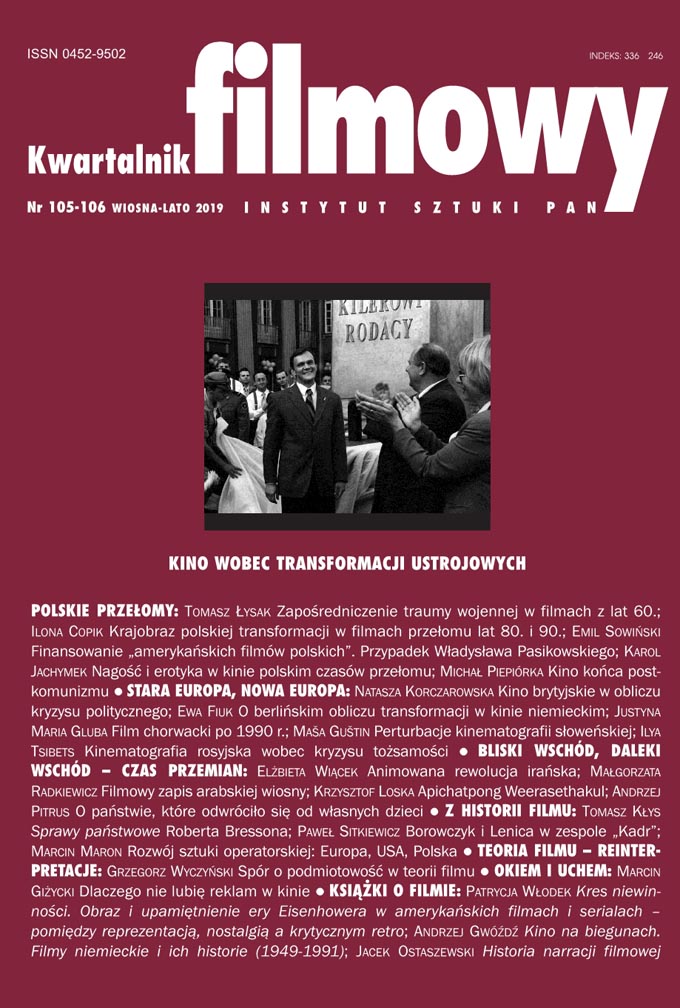Już tylko „Kiler”. Kino końca postkomunizmu
Only a „Kiler”. The Cinema of the End of Post-Communism
Author(s): Michał PiepiórkaSubject(s): Theatre, Dance, Performing Arts, Fine Arts / Performing Arts, Visual Arts, Film / Cinema / Cinematography
Published by: Instytut Sztuki Polskiej Akademii Nauk
Keywords: Polish cinema;postcommunism;
Summary/Abstract: The author of the article focuses on films that at the turn of the century heralded the collapse of the current way of representing Polish reality after transformation. In the 1990s, the most popular films represented the so-called bandit cinema, whose narrative coincided with what Jadwiga Staniszkis wrote about behind-the-scenes competitions at the junction of business and politics. The sociologist described the 1990s as an era of post-communism, in which people associated with the previous power still ruled – with the difference that they ruled in the economic field, and not in political one. Towards the end of the decade, this narrative ceased to have an explanatory function and was replaced by others – the disarming horror of post-communism and showing Poland as a normal European country without communist ballast. In the article, Piepiórka focuses on action films by Wojciech Wójcik and the debut of Patryk Vega and bandits comedies, parodying such films as „Pigs” or „Young Wolves”. In this manner, the author describes the strategies of coping with the trauma of post-communism by Polish cinema.
Journal: Kwartalnik Filmowy
- Issue Year: 2019
- Issue No: 105-106
- Page Range: 69-82
- Page Count: 14
- Language: Polish

